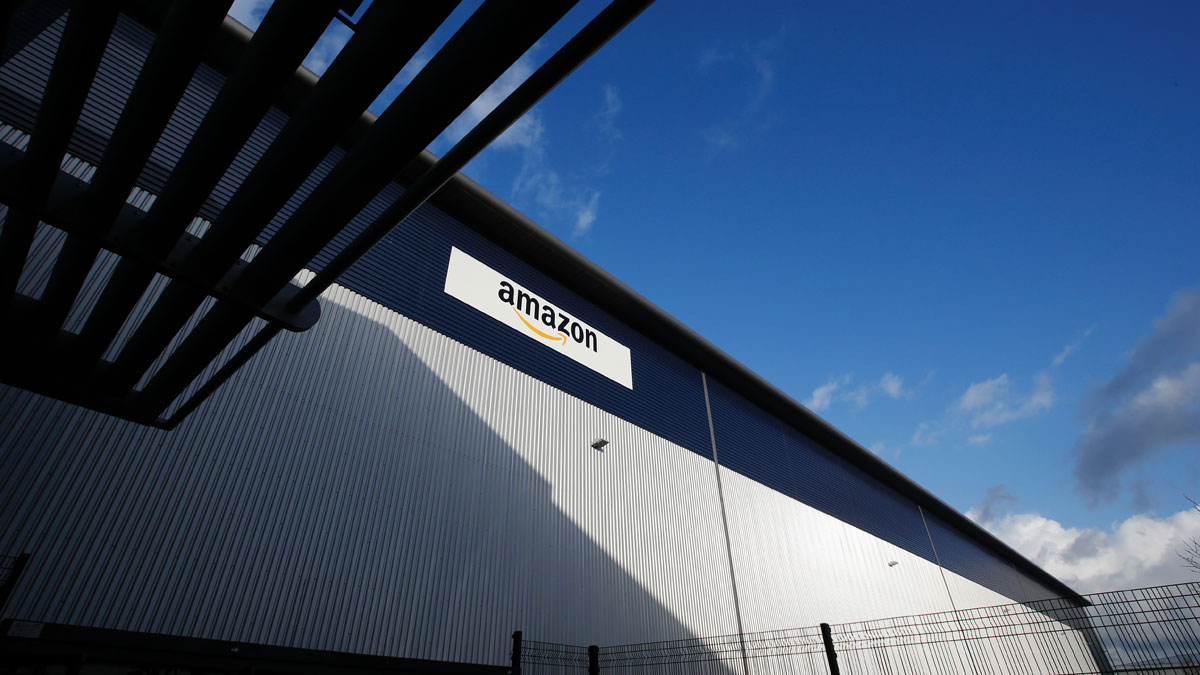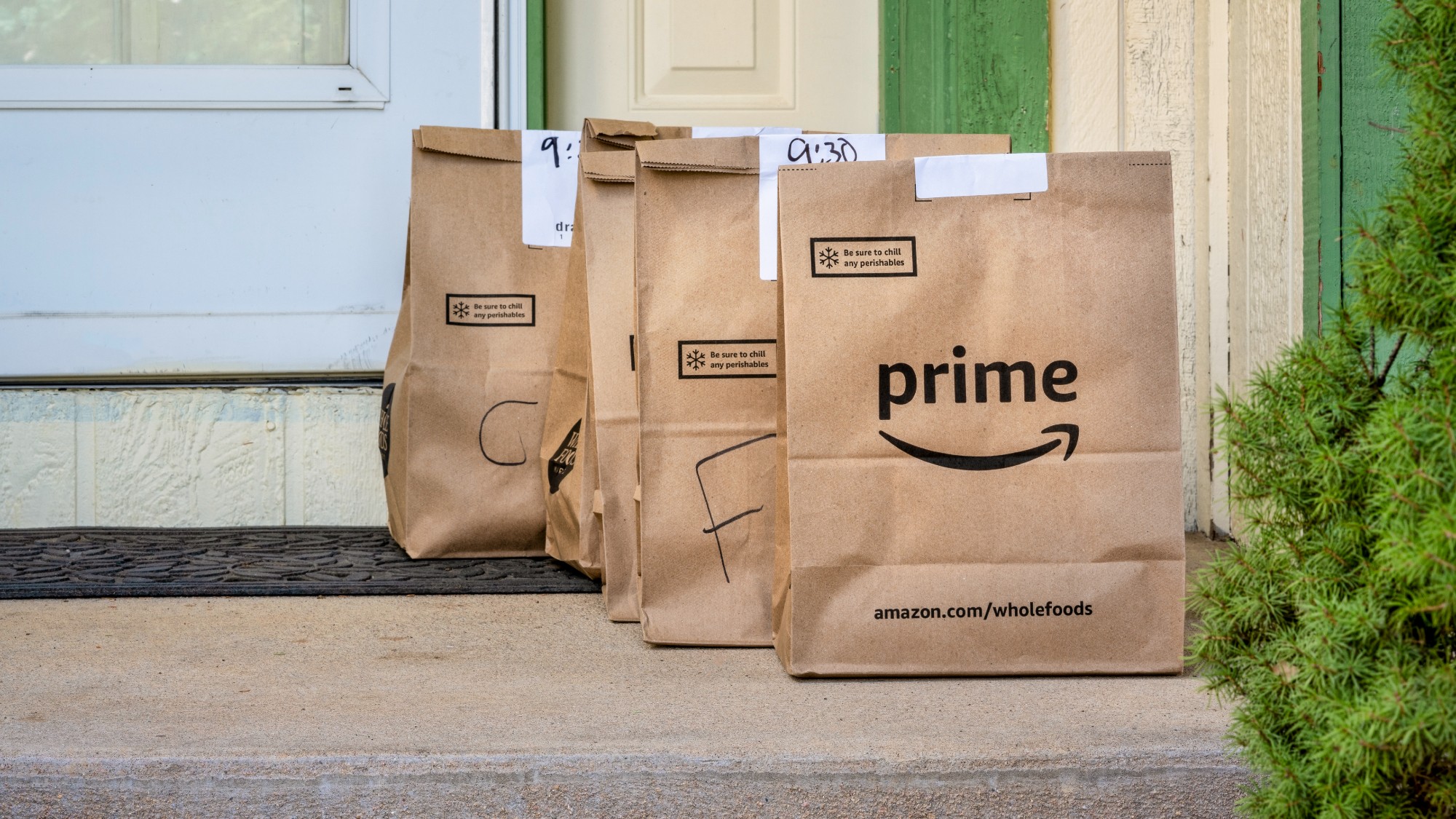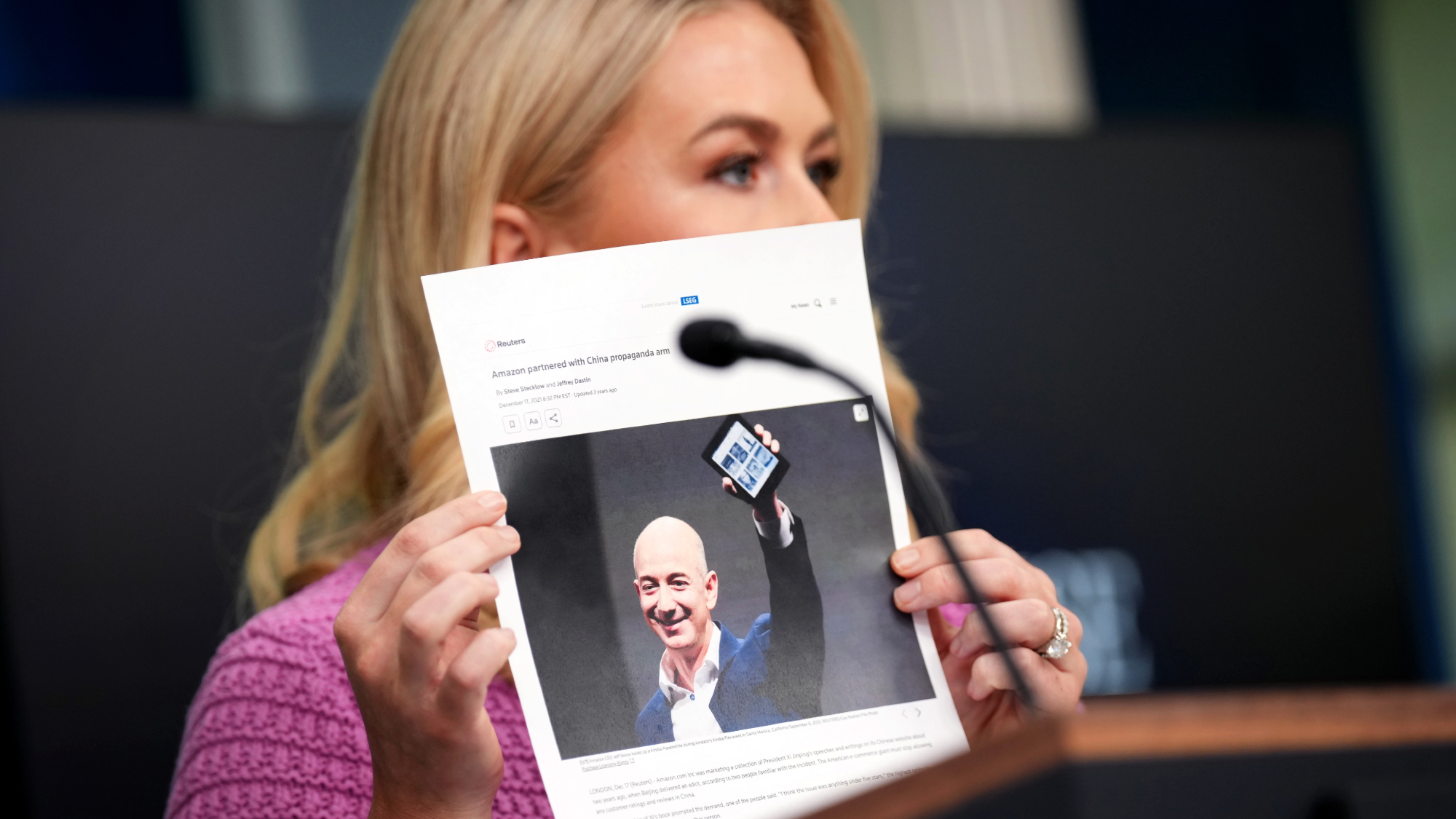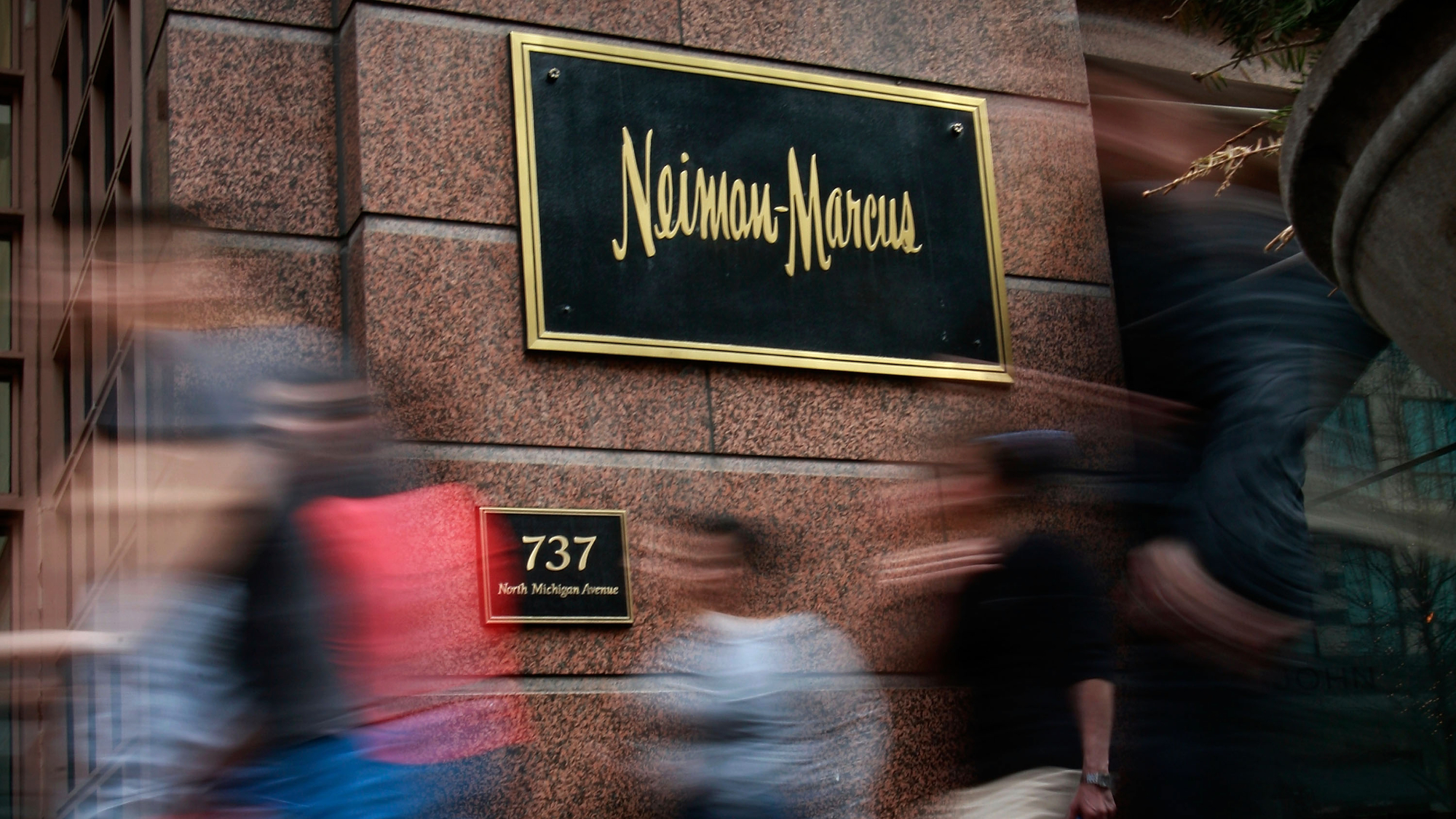MPs to investigate £1.5bn VAT fraud involving eBay and Amazon sellers
Parliamentary committee ready to examine third-party sellers who evade tax on online sites

A free daily email with the biggest news stories of the day – and the best features from TheWeek.com
You are now subscribed
Your newsletter sign-up was successful
An influential parliamentary committee is set to launch a new investigation into mass VAT fraud committed by third-party sellers through Amazon and eBay, says The Guardian.
Conservative MP Richard Bacon, who sits on the public accounts committee, told the paper: "I think this is absolutely an issue we need to look at."
The committee has been hugely effective in the past, playing "a central role in shining a spotlight on other tax scandals involving the likes of Starbucks, Google and Amazon" and helping to "trigger international tax reforms".
The Week
Escape your echo chamber. Get the facts behind the news, plus analysis from multiple perspectives.

Sign up for The Week's Free Newsletters
From our morning news briefing to a weekly Good News Newsletter, get the best of The Week delivered directly to your inbox.
From our morning news briefing to a weekly Good News Newsletter, get the best of The Week delivered directly to your inbox.
It has also generated "important evidence for European Commission inquiries into alleged sweetheart tax deals for multinational corporations".
The intervention comes in the wake of data showing that new powers for HMRC to clamp down on this issue have prompted a rush of VAT registrations in recent months.
Since September HMRC has had the power to warn sellers – and Amazon and eBay as their online hosts – that they are not complying with the rules. After this Amazon and eBay can be held directly liable, in some cases, for ongoing avoidance by fraudulent overseas sellers on their websites.
"Latest figures show 7,185 overseas sellers have come forward to register for VAT since January, compared with just 695 in 2015," says the Guardian.
A free daily email with the biggest news stories of the day – and the best features from TheWeek.com
Treasury secretary Jane Ellison said the rush to register was in response to former chancellor George Osborne's announcement of the new powers in March.
But tax campaigners have criticised Ellison and HMRC's failure to provide data on how much additional tax has been recovered. HMRC itself has estimated the problem costs the UK around £1.5bn in lost VAT receipts.
A spokesperson for campaign group VATfraud.org said: "It's all well and good HMRC handed out 7,185 VAT numbers to internet retailers in the last year; it just proves this fraud is enormous."
All online retailers that supply goods from a UK base and have revenues in excess of £83,000 should be registered for VAT.
But large numbers of overseas sellers on Amazon and eBay, many based in China, are selling goods that are stored in UK warehouses without displaying a valid VAT number.
Amazon and eBay have repeatedly said they cooperate with HMRC where required, but that they do not have the power or ability to police VAT compliance of independent sellers.
Amazon and Ebay to be liable for sellers' VAT avoidance
17 March
Online selling platforms Amazon and Ebay will be made to pay the tax bills of sellers if they are unable to help ensure compliance with UK tax laws, George Osborne announced yesterday.
Coming as part of a package of tax avoidance measures, the Chancellor unveiled new powers for HMRC to step in over overseas sellers who hold stock in the UK and sell through big online marketplaces but are not registered for VAT. The Guardian says the abuse is estimated to cost the taxpayer between £1bn and £1.5bn each year.
Online retailers have to charge VAT on products if they are stored and distributed from locations in the UK and their turnover exceeds £82,000 a year. But many sellers using Amazon and Ebay warehouses in the UK are not registering and not paying tax, giving them an unfair advantage on their UK competitors.
Under the new powers, HMRC will be able to warn them and the host site that they are not complying with the law. If the correct levy is still not paid and the sellers continue, then The Register notes the websites themselves can be held "jointly or severally" liable for the bill.
Estimates are that the clampdown will recoup £875m each year.
Campaigners say the measures are not more effective and place too much emphasis on HMRC to identify wrongdoing rather than putting more onus on Amazon and Ebay to police users.
"We welcome these changes but are concerned that HMRC doesn't have the resources to chase hundreds of overseas traders," said Richard Allen of Retailers against VAT Abuse Schemes. "We want measures that will force Amazon and eBay to effectively police VAT compliance themselves."
An Ebay spokesman said: "We welcome rules that ensure a fair marketplace and will review the detail of the legislation. Even without such a law, we would not hesitate to suspend sellers found by HMRC to be evading VAT.
"We have also contacted hundreds of Chinese sellers to notify and educate them on the need to comply with the law."
A spokesman for Amazon added: "We fully support VAT compliance by companies selling products through online marketplaces and offer tools and information to assist our sellers in their VAT obligations. We are currently reviewing the government's proposals and we will naturally comply with any legislation."
Could Amazon and eBay be made to foot big VAT bill?
23 December 2015
Amazon and eBay could be made liable for a huge VAT bill that is currently going unpaid by businesses selling goods in the UK through its websites.
Online retailers have a legal obligation to charge VAT on products if they are stored and distributed from locations in the UK and their turnover exceeds £82,000 a year. But an investigation by The Guardian found swathes of sellers through internet sites like Amazon and eBay are not applying the tax, even though they rack up high volumes of transactions and use their warehouses in the UK as a base.
An iPad Air and Fitbit wristband "were among 24 popular items in a £1,818.20 sample order placed on Amazon as part of the Guardian's investigation", which involved purchases from 23 sellers with overseas business addresses, for which no VAT was charged. The sellers are often undercutting prices charged in high street stores that have to apply the 20 per cent tax, with the difference often less than the tax rate meaning that margins are significantly enhanced.
In a debate on the issue in parliament this week, Conservative peer Lord Lucas accused Amazon and eBay of "collaborating with hundreds of overseas retailers to defraud the taxman of millions of pounds every day". Both companies vehemently deny the charge and issued statements saying they are not able to oversee tax compliance, which is a matter for the individual sellers.
One option to close the loophole would be to force Amazon and eBay to pick up the bill, which they could then pass on to the underlying retailers. Treasury spokesperson Lord Ashton said HMRC was now "looking at all possible options", including "whether online platforms should be made liable for VAT".
The Financial Times says another option could be for the firms to work with HMRC to help it to clamp down on the avoidance. Meetings were held last month with senior figures at both eBay and Amazon, among others, and last month the tax watchdog published draft guidelines that would enable it to "bulk gather" data from firms in order to track down sellers. It expects the plans to help it raise £860m by 2021.
The latest controversy comes amid ongoing anger at larger international companies who are seen to be dodging their obligations at a time of austerity. Cadbury and Netflix have both been singled out recently for paying no corporation tax in the UK. Reuters reports today that investment banks JP Morgan, Bank of America Merrill Lynch, Deutsche Bank, Nomura Holdings and Morgan Stanley also paid nothing last year.
Seven banks, including Goldman Sachs and UBS, paid a combined £21m on profits of £3.6bn, with losses legitimately limited by the use of generous tax breaks and rules allowing taxable income to be offset against losses from previous years. Some also "reported losses in London, while reporting profits in much smaller affiliates in lower tax jurisdictions".
-
 The Olympic timekeepers keeping the Games on track
The Olympic timekeepers keeping the Games on trackUnder the Radar Swiss watchmaking giant Omega has been at the finish line of every Olympic Games for nearly 100 years
-
 Will increasing tensions with Iran boil over into war?
Will increasing tensions with Iran boil over into war?Today’s Big Question President Donald Trump has recently been threatening the country
-
 Corruption: The spy sheikh and the president
Corruption: The spy sheikh and the presidentFeature Trump is at the center of another scandal
-
 Is the job market frozen or faltering?
Is the job market frozen or faltering?Today's Big Question Layoffs raise alarms while young workers eye law school
-
 Is Amazon about to take over the grocery business?
Is Amazon about to take over the grocery business?Today's Big Question Expanded delivery will present a challenge to Walmart and Kroger
-
 Trump calls Amazon's Bezos over tariff display
Trump calls Amazon's Bezos over tariff displaySpeed Read The president was not happy with reports that Amazon would list the added cost from tariffs alongside product prices
-
 What's Jeff Bezos' net worth?
What's Jeff Bezos' net worth?In Depth The Amazon tycoon and third richest person in the world made his fortune pioneering online retail
-
 Amazon's 'James Bond' deal could mean a new future for 007
Amazon's 'James Bond' deal could mean a new future for 007In the Spotlight The franchise was previously owned by the Broccoli family
-
 Britain's new retail returns nightmare
Britain's new retail returns nightmareIn the Spotlight Gen Z influencers and a 'poopy diaper' have shown up fault-lines in the system
-
 Saks buys Neiman Marcus in $2.65B deal
Saks buys Neiman Marcus in $2.65B dealSpeed Read Following the merger of the two legacy retailers, the new entity will be called Saks Global
-
 Retail media is seeing a surge this year
Retail media is seeing a surge this yearThe Explainer Amazon now makes more money from advertising than Coca-Cola's global revenue